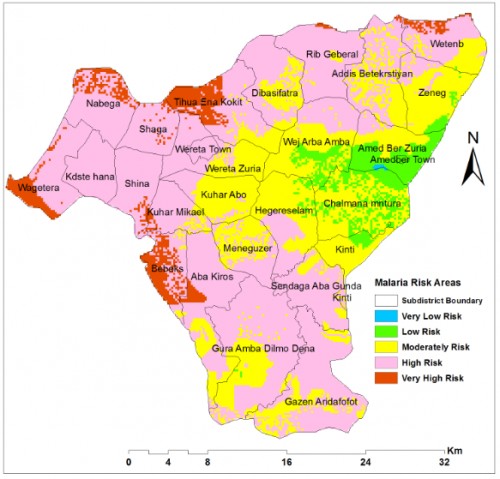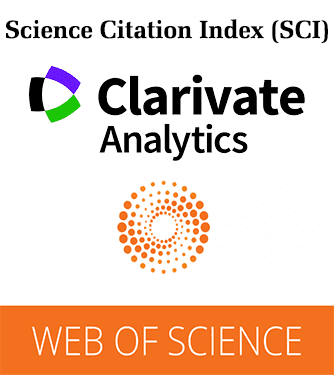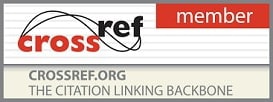Vol. 5, Issue 5, Part A (2018)
Modelling of malaria hotspot sites using geospatial technology in the north-western highlands of Ethiopia
Author(s): Solomon Eniyew
Abstract: The study focused on mapping risk areas in Fogera plain, North-Western Highland of Ethiopia. Environmental and socio-economic factors were considered, after assigning their own valuable weight in IDRISI software using Pairwise Comparison Technique. Malaria hazard map was developed combining environmental factors like altitude, slope, soil, and distance from breeding sites by using Weighted Overlay Model in Arc GIS. Finally, the risk map was generated by employing risk model that uses hazard, element at risk (population density layer) and vulnerability (land cover layer and distance from health center layer) as input. Hence, very high and high-risk areas constitute 5.51% and 58.12% of the total area respectively. Moderately risk land comprises 30.51% share of the total area. Very low and low risky areas together account below 6% of the total land in the study area. Thus, integrating GIS and remote sensing-based modeling for malaria risk mapping is a worthy technique. Especially, this method can contribute lot to more informed decision and policy making process in terms of planning for intervention and controlling malaria. Hence, it is suggested that it will be effective if the results of this study will be incorporated into ongoing malaria eradication programs at national level in general and in the study area in particular.
Related Graphics: Click here for more related graphics

Fig.: Malaria Risk Areasidentified using Weighted overlay Model in Arc GIS
Pages: 59-70 | 1706 Views 269 Downloads
How to cite this article:
Solomon Eniyew. Modelling of malaria hotspot sites using geospatial technology in the north-western highlands of Ethiopia. Int J Mosq Res 2018;5(5):59-70.







